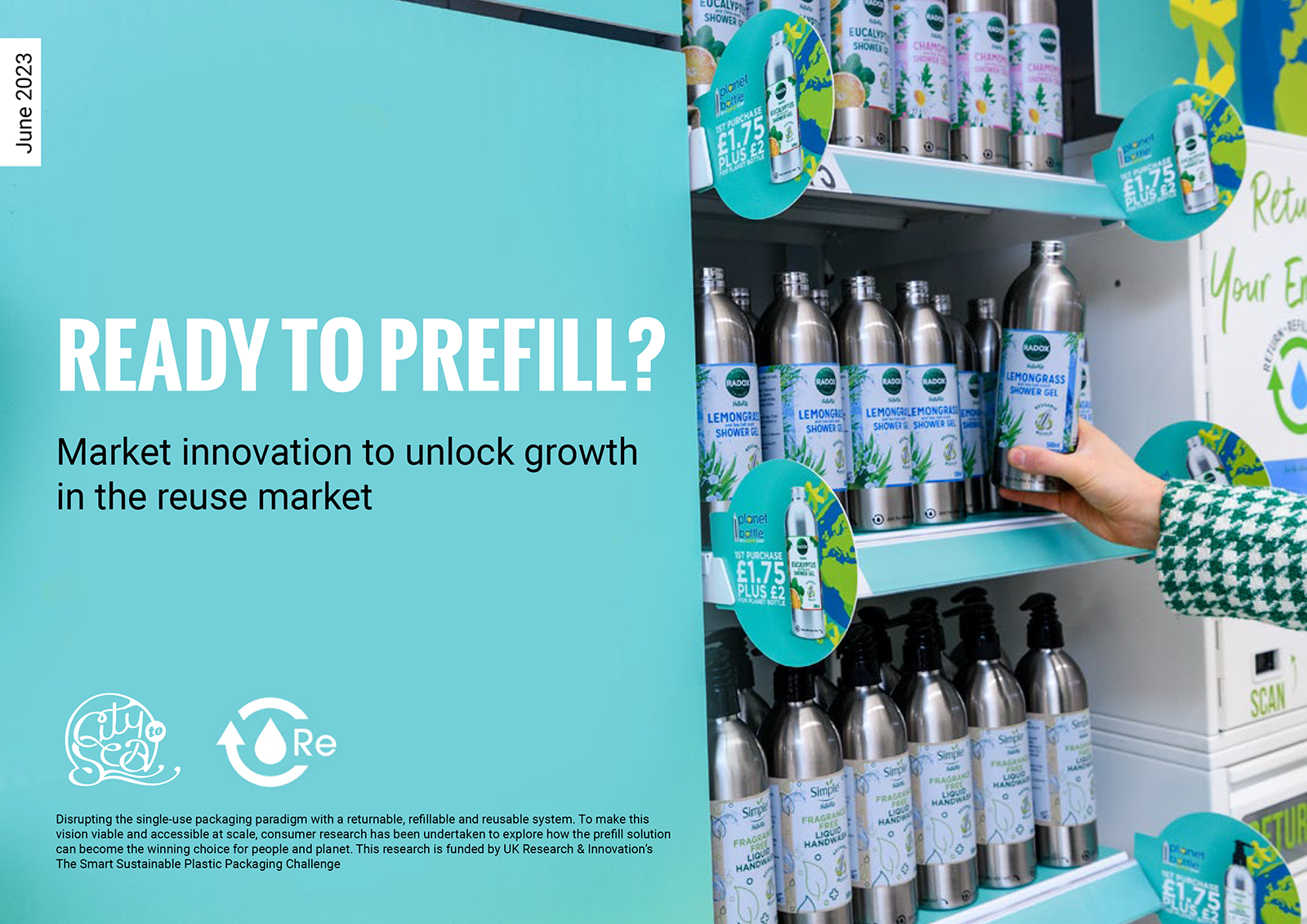City to Sea is an environmental, not-for-profit organisation who campaign to stop plastic pollution at the source. The organisation is working on a number of projects, designed to scale uptake of refill and reuse behaviours.
Hitch Marketing was commissioned to deliver in-depth research to further understand the refill and reuse consumer and to make recommendations to drive behaviour change. These insights and recommendations were to be applied to City to Sea’s campaigning work and shared with businesses to increase uptake of reuse and refill.
The Brief
The primary research had the following aims.
- To understand the language consumers use to describe this type of product packaging.
- To map drivers and facilitators onto the COM-B model.
- To make recommendations on how to create a narrative to increase awareness of reusable and refillable product packaging.
Method
The project started with an initial phase of desk research. Desk research revealed that there is a wide variation in the use of language used by governments, regulatory bodies and non-governmental organisations (NGOs) to describe refill and reuse generally, and the specific products available to refill and reuse.
Additionally, at the time the desk research was conducted, there appeared to be a gap in the available literature relating to consumers’ awareness and understanding of refill and reuse again generally and by specific products.
Furthermore, PAEI (Publicly Available Electronic Information) analysis shows that there is no online narrative around refill and reuse, beyond the environmentally conscious community or those very engaged in pro-environmental lifestyles, indicating that there is a lack of awareness of refill reuse and / or a lack of consistent language to describe refill and reuse products.
Two types of survey software were then used to collect data from the general public, One Pulse and Smart Survey. The two survey platforms complimented each other as One Pulse provided a high volume of data specific to use of language whereas Smart Survey allowed for more in-depth data but at a lower volume.
One Pulse is a mobile app based micro-survey platform that uses panel participants to collect data at a rapid pace. Micro-surveys are short simple surveys (usually 1-3 questions) that allow researchers to gather actionable insight in a short time frame. A long-form survey was created using the Smart Survey platform. Using a longer, more in-depth survey allowed for the collection of more qualitative data than the One Pulse survey.
Results
The project used a survey design. In total over 2300 responses were gathered. The data was thematically coded and analysed. The analysis revealed that when unprompted, most consumers used the word “reusable” rather than “refillable” to describe this type of product packaging.
Analysis that utilised the COM-B model showed that habit formation was a key motivator when it come to reusable packaging. This suggests that interventions that focus on building habits would be an effective intervention. This could be achieved by incentivising and rewarding consumers for purchasing products that come in reusable packaging or sending consumers personalised prompts to remind them to reuse their empty packaging.

Following on from this work, phase two of the project aimed to understand how to encourage consumers (who have not used prefills before) to try prefills for the first time and how to build habitual behaviours to continue their use of prefills such as by remembering to bring their returnable container or by taking part in a deposit return scheme. Additionally, the research considered the differences in audiences’ perceptions to refills and prefills. The final report is now available on the City to Sea website.
If you would like to find out more about this or any other behavioural insights projects, please get in touch.